Farmers Weekly Awards winners – on farming and winning
Farmers Weekly’s annual awards aim to put the spotlight on the farming industry by celebrating great farmers and great farming practices across the sectors.
Not only do the Awards help raise farming’s profile but the awards nights is one of the best nights out you’ll ever attend.
If you’ve thought about entering yourself or nominating someone else for an award, but haven’t yet been persuaded yet, hear from the farmers who won in 2017 about their experiences of winning.
Read on, and be inspired to tell your story, just like these farmers are doing.
See also: 5 tips for compiling a top Farmers Weekly Awards entry
Ag Student of the Year
Josh Dowbiggin, Barnoldswick, Lancashire
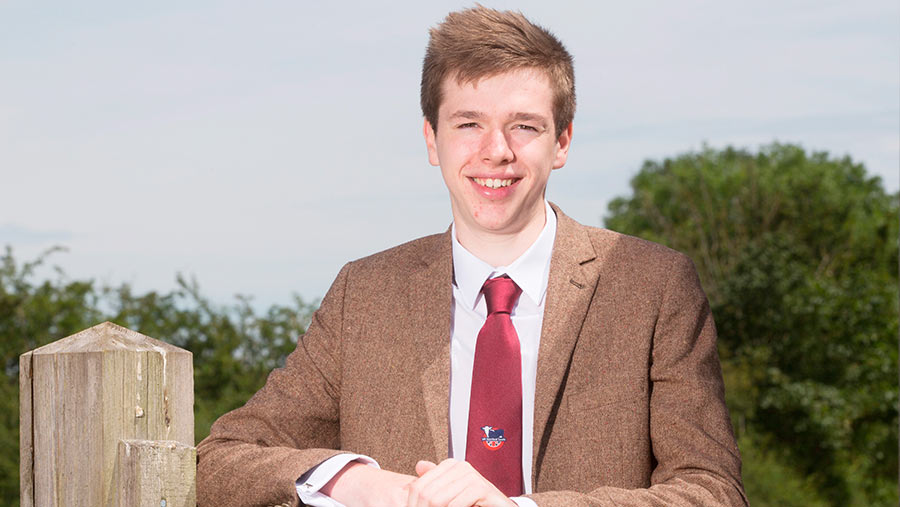
Josh Dowbiggin. © Tim Scrivener
- Age 21
- Harper Adams University, Shropshire
- BSc (Hons) Agriculture, fourth year
How did you feel after hearing you were a winner?
Shocked and ecstatic. The winners don’t find out until the actual awards night, so it was nerve-racking, but I was overjoyed.
What attributes/achievements do you think are important in an Ag Student winner?
Someone who goes above and beyond the norm, who has a vision for their future and a clear plan as to how they’re going to get there. Someone who grabs every opportunity to expand their knowledge.
They should have a good academic record, but balance university or college life with extra-curricular activities.
They’ll be dedicated to agriculture and will have a big impact in the sector one day.
What’s your one tip for anyone entering to improve their chances of success?
Take your time with your entry form. Don’t just make lots of random points – come to a conclusion and make sure you always answer the question. Also, submit as much supporting evidence as possible.
What’s the best bit of farming advice you’ve ever been given?
If you don’t ask, you don’t get. If the answer’s ‘no’, you’ve lost nothing. If it’s ‘yes’, you can gain a lot.
Arable Farmer of the Year
Shaun Watson, Westfield Farm, East Holywell, Northumberland
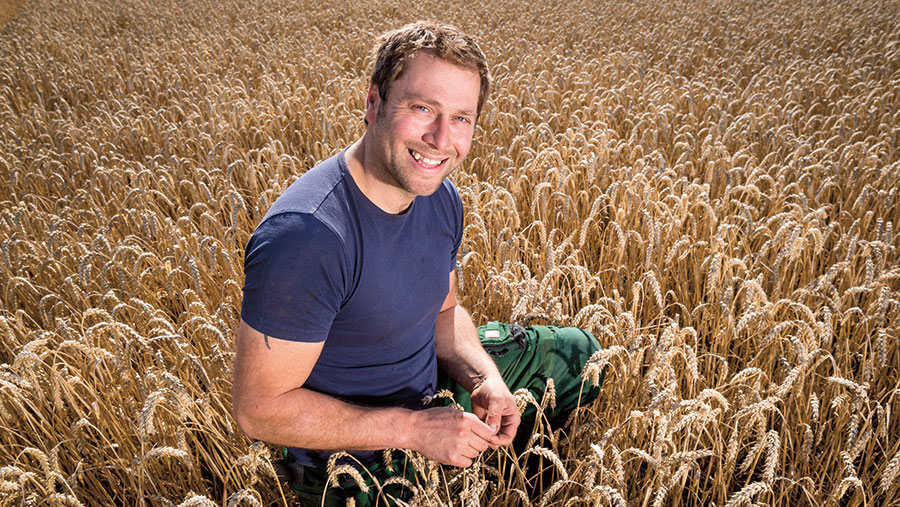
Shaun Watson. © Jim Varney
- Expanded area farmed from 280ha in 2013 to 730ha in 2016
- Technology has played a key role in driving productivity
What attributes/achievements do you think are important in an Arable farmer winner?
Someone who’s enthusiastic, forward-thinking and dedicated to making their business work and grow.
Describe the Awards night in three words
Inspiring. Amazing. Unforgettable.
What’s the biggest challenge you’re facing right now – and how are you tackling it?
Our biggest challenge is farming on the urban fringe – we’re about a mile from the outskirts of Whitley Bay and only about four miles from the edge of Newcastle.
We have to make every square metre count as land is becoming scarcer. We’re losing land every year so, to find more, we have to travel further – which makes the logistics of farming more difficult.
Who inspires you?
My dad, Philip. His attitude to move forward and take on new challenges is inspirational. He has supported my brother Anthony and I all the way when we’ve had big plans.
Some fathers aren’t like that, but he’s incredibly positive and has a real attitude of going out and grabbing the bull by the horns.
Beef Farmers of the Year
Paul and Dwynwen Williams, Cae Haidd Farm, Llanrwst, Conwy
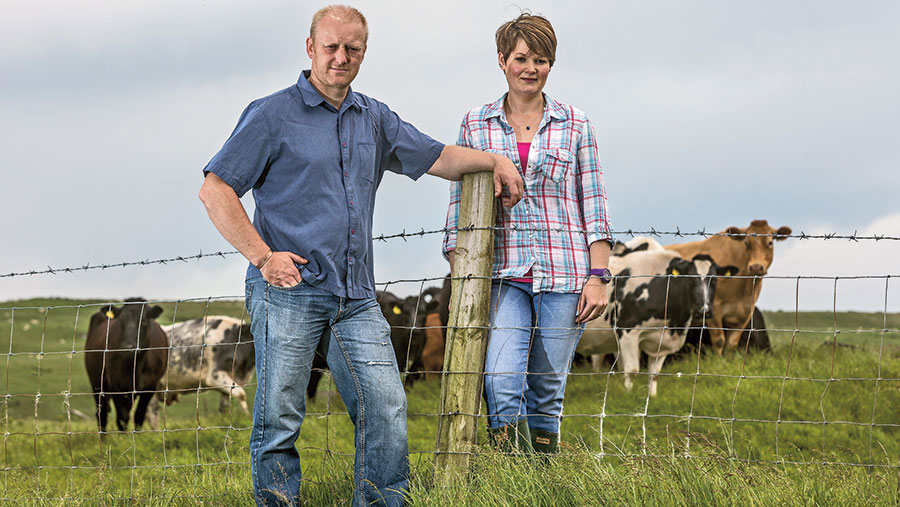
Paul and Dwynwen Williams. © Richard Stanton
- 122ha owned and 5.5ha rented
- 50 head suckler herd, selling calves as stores
- 600 ewes and calf-rearing enterprise
How did you feel after hearing you were winners?
It took a while for us to compose ourselves before we could stand up and be presented with the trophy. It was a very humbling experience.
What attributes/achievements do you think are important in an Beef farmer winner?
Attention to detail is very important, as is constantly striving to “raise the bar” in both physical and financial performance. Mostly, though, what can we learn from the visit to the finalists’ farms?
What’s the best bit of farming advice you’ve ever been given?
A vision without a plan is still a dream, but a plan without a vision is a certain nightmare. Have a goal, know your outcomes and stick to the plan.
How different will farming be in 10 years’ time – and why?
With Brexit looming, greater use of evolving technologies and better understanding of key financial and physical performance figures will be essential if our industry is to compete.
We must also make sure the younger generation has the opportunity to integrate within our businesses much sooner that at present.
Contractor of the Year
Russell Price, Russell Price Farm Services, Herefordshire
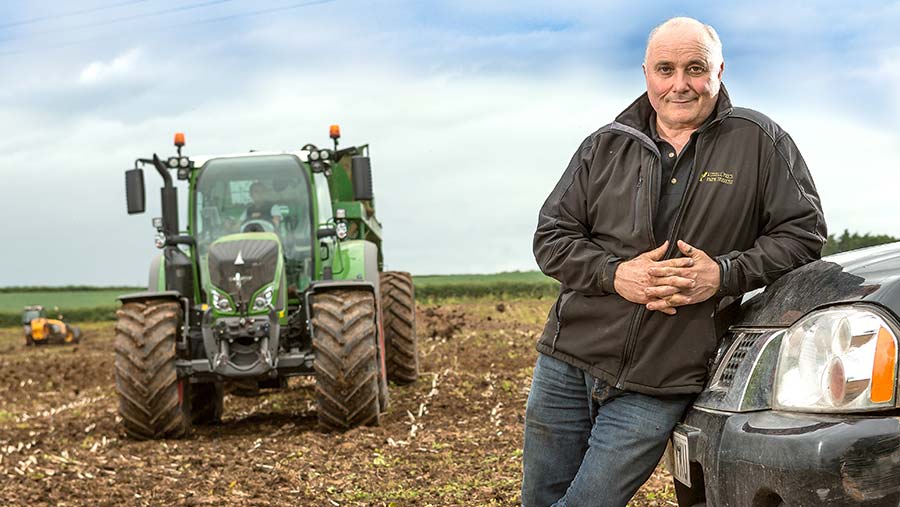
Russell Price. © Richard Stanton
- Complete service covering the full farming cycle
- In business for 25-plus years
- More than 150 customers
How did you feel after hearing you were a winner?
I was just happy to have got to the final three – I never thought we’d win. The award was an accolade for the whole team and it was fantastic that most of them, my family and close friends could be there to enjoy the moment.
What attributes/achievements do you think are important in a Contractor winner?
Apart from being an essential part of their customers’ businesses, they should demonstrate efficiency, innovation and the ability to deliver a timely, reliable service.
A good business sense is essential – and I will be particularly looking at staffing, motivation and employment styles.
Describe the Awards night in three words
Inspiring. Celebratory. Unique.
Who inspires you?
Agriculture is not the most predictable industry so I really admire my customers who focus and work hard on building a business and creating profit.
They’re balancing so many environmental, economic, political, accountability, community, sustainability, productivity, personnel and welfare issues, while having very little influence on the end result.
Dairy Farmers of the Year
Neville and Suzanne Loder, The Dairy Farm, Oborne, Sherborne, Dorset
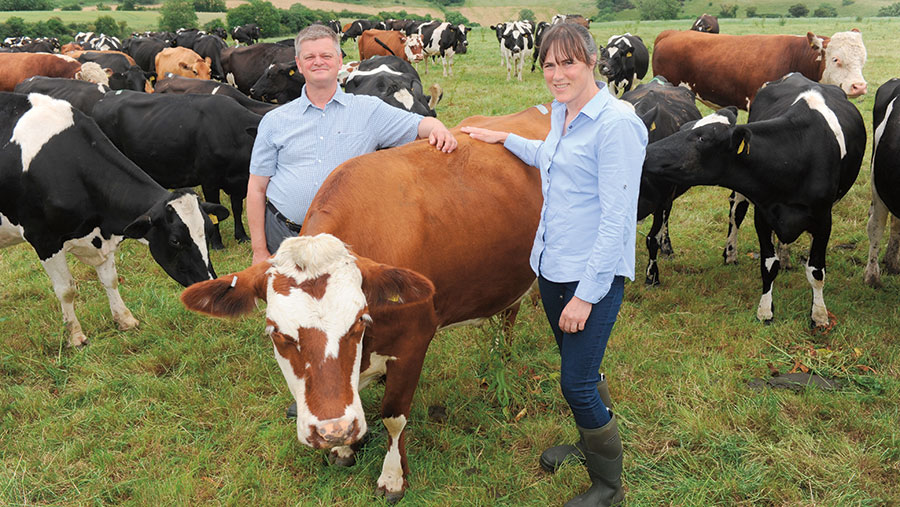
Neville and Suzanne Loder. © Hugh Nutt
- First-generation farmers
- Began on small, council farm tenancy
- Milking 147 spring-calving, cross-bred cows across 104ha
How did you feel after hearing you were a winner?
It literally brought us to tears to get recognition for all our hard work and perseverance over the years since we started from nothing.
What attributes/achievements do you think are important in a Dairy winner?
Someone who is passionate about dairying, self-motivated, ambitious, as well as willing and eager to add to their knowledge base and skills.
I like a positive, can-do attitude, and you need tenacity to do well in the dairy sector.
Describe the Awards night in three words
Dream come true.
What’s the best bit of farming advice you’ve ever been given?
Keep it simple and don’t complicate things. Also, to keep a constant, close eye on your finances.
Some businesses are working off last year’s accounts, but we try to operate more in “real-time”. We always do monthly cashflows and budgets so, that way, we’re never more than a few weeks behind.
Hopefully that means we can anticipate potential problems and solve them before they even arise.
Diversification Farmers of the Year
Jonny and Dulcie Crickmore, Fen Farm Dairy, Bungay, Suffolk
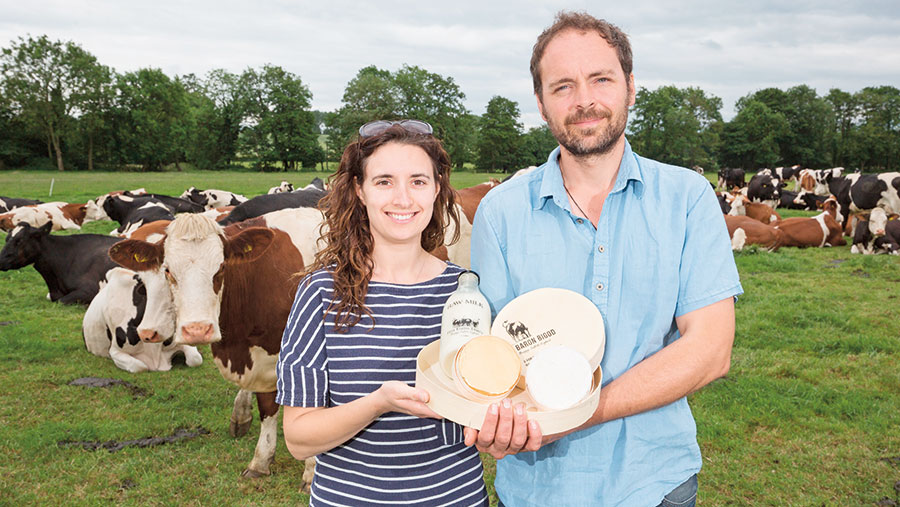
Dulcie and Jonny Crickmore. © Tim Scrivener
- 384ha (half owned, half rented)
- Diversified by selling raw milk from the farmgate and making raw milk Brie-style cheese and cultured butter
What’s new with your business since FW last caught up with you?
We have started construction of a new cheesemaking building on the farm. We also have a coffee vending machine, using our own fresh milk, for passing trade. It makes an incredible latte.
What’s the best bit of farming advice you’ve ever been given?
Whenever you’re planning to build something, double its size and you won’t go far wrong.
Who inspires you?
Great business entrepreneurs. When the cheese business started growing at a fast rate, we decided we needed to bring in outside help and advice.
We were lucky enough to meet Stephen Unwin, formerly of the Coppela drinks company and now CEO of Cawston Press. He’s our business coach.
How different will farming be in 10 years’ time – and why?
There will be huge farms owned by shareholders selling to multinational companies.
Then, on the opposite side, will be smaller farms, diversified and selling direct to the public, adding value to their land and property and the products they make.
Farm Adviser of the Year
Andrew Jenkinson, Robinson and Hall, Buckinghamshire
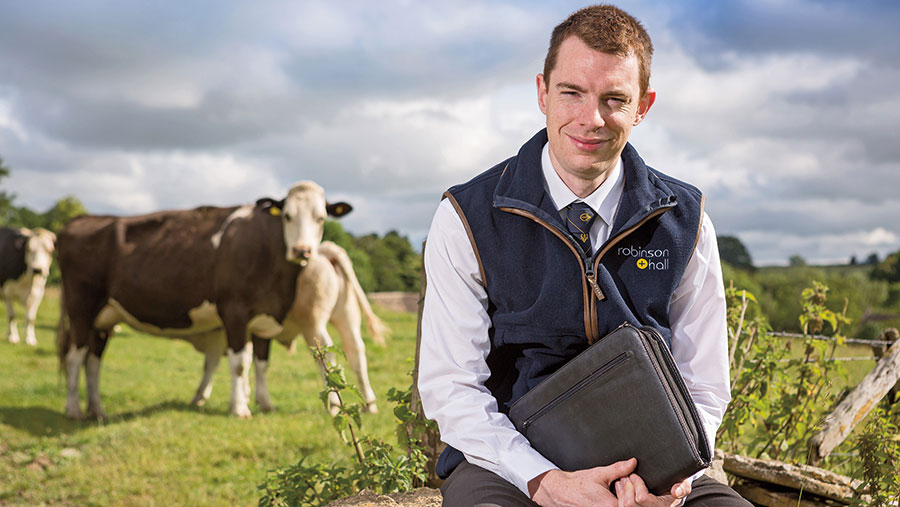
Andrew Jenkinson. © Richard Stanton
- Joined the firm of land agents after leaving Reading University in 2005
- Delivering value for money and serving clients’ needs are key motivators
What’s the biggest challenge you’re facing right now – and how are you tackling it?
The Basic Payment Scheme (BPS). Resolving 2015, 2016 and 2017 payments continues, but the requirement to map hedges in 2018, resolve the incorrect remapping work, as well as the changes in greening rules, is resulting in a massive amount of extra work for everyone involved.
This year I’ve started completing clients’ BPS forms earlier than ever, and I would urge everyone to think likewise.
What difference has winning made to you and your business?
The publicity from winning is huge. I’ve received messages of congratulations from around the world.
What attributes/achievements do you think are important in a Farm Adviser winner?
The ability to add value to a client’s business is key as we are being paid for our knowledge and experience. The ability to understand a customer’s requirements quickly, and the interaction this has to the business and family, is also a major attribute.
What’s your one tip for anyone entering to improve their chances of success?
In the examples you give, show the judges how you made a real personal difference to that farmer.
Farmworker of the Year
Hugh Sapsed, John Sheard Farms, Pertenhall, Bedfordshire
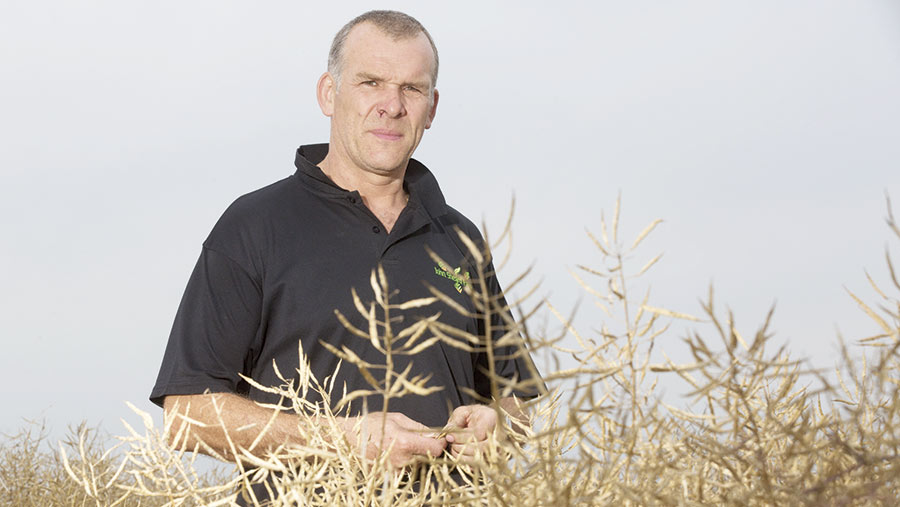
Hugh Sapsed. © Tim Scrivener
- Multi-talented farmworker
- Great adaptability and innovative ideas
- Highly respected member of the team and the community
What attributes/achievements do you think are important in a Farmworker winner?
It’ll be someone who is very much a team player. When a group of people are really working together, they can get so much more done.
What’s your one tip for anyone entering to improve their chances of success?
Be yourself and, when you’re filling out the application form or meeting the judges, make sure you stand out. Share something that will make you memorable.
What’s the best bit of farming advice you’ve ever been given?
Work smarter not harder. Sometimes this involves taking a step back and looking at the way you do things. If you can simplify a process and make it more efficient, do so.
How different will farming be in 10 years’ time – and why?
More farmers will see the benefits of working together, either informally or formally.
Small farms will collaborate, which will allow them to share kit and get access to better machinery. As subsidies fall, people will need to change what they do.
Mixed Farmer of the Year
Robert Neill, Upper Nisbet Farm, Jedburgh, Roxburghshire
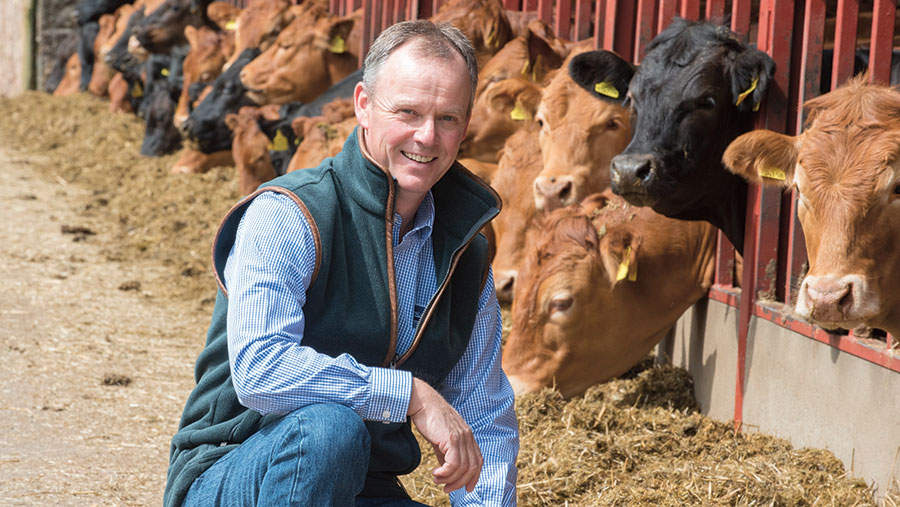
Robert Neill. © Angus Findlay
- Doubled the size of tenanted farm in 17 years
- Embraces developments in best practice
- Collaborates strongly with his two brothers
- Also won Overall Farmer of the Year
How did you feel after hearing you were a winner?
Overwhelmed. It was wonderful recognition for everyone who made our win happen – my parents, my wife, my brothers, the farm staff and my two boys.
It might have been my name on the plaque, but if it wasn’t for those people, I wouldn’t have been up on that stage.
What attributes/achievements do you think are important in a Mixed Farmer winner?
Someone who has a great farm business – and, in this respect, particularly an attention to detail.
Someone who also does good work in the wider community to showcase what farming is all about.
Describe the Awards night in three words
The farming Oscars.
What’s the best bit of farming advice you’ve ever been given?
My grandfather always said, “Have your glass half full, not half empty,” and I always look to the future with passion and positivity.
We should all be enthusiastic about our industry – let’s be proud and shout from the rooftops about all the good things we do.
Pig Farmer of the Year
Howard Revell, British Quality Pigs, Stradbroke, Suffolk
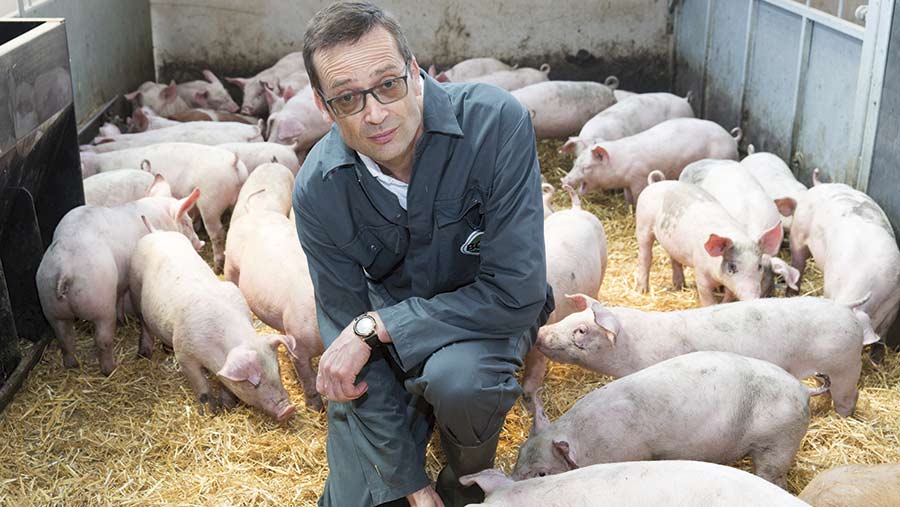
Howard Revell. © Tim Scrivener
- Manages production, technical, veterinary and customer-facing supply chain teams
- Worked for 30-plus years for this company, which produces well over a million pigs a year
How did you feel after hearing you were a winner?
Surprised and shocked.
Describe the Awards night in three words
Hugely inspiring event.
What’s the biggest challenge you’re facing right now – and how are you tackling it?
One of the biggest challenges is getting young, enthusiastic and capable people into the pig sector, along with getting investment into buildings that are efficient, labour-saving, high-welfare and able to meet customers’ expectations.
Over the past decade we have pioneered a package for new entrants allowing them to start pig farming on a contract basis and, over those 10 years, about 130 new buildings have been built on farms across England as a result.
Often these have been part of a young person’s entry into agriculture. It’s a real joy to see young entrants’ can-do attitude, will to succeed, entrepreneurial approach and, of course, IT savviness.
Who inspires you?
The team and the farmers I work with – it can be very humbling to see all their achievements.
Poultry Farmer of the Year
Robert Chapman, Farmlay, Fraserburgh, Aberdeenshire
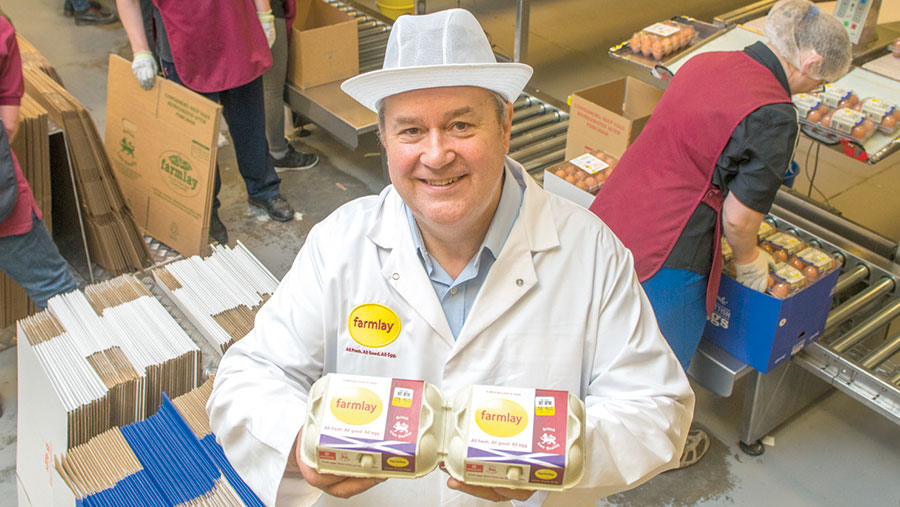
Robert Chapman. © Angus Findlay
- Family farm that has grown into a major supplier of Scottish eggs to supermarkets
- 300,000 laying hens, plus contracted producers
- 175,000 rearing chicks
What difference has winning made to you and your business?
It was great for the whole team to see their hard work rewarded, but it has also raised the profile of the business.
When an independent organisation like Farmers Weekly deems you to be the best, it’s a tremendous accolade and it helps greatly when you’re speaking to the people you do business with.
Describe the Awards night in three words
Wonderful, wonderful, wonderful.
What’s the biggest challenge you’re facing right now – and how are you tackling it?
Right now – and this is a nice problem to have – it’s satisfying the demand for eggs.
The industry has come such a long way since the dark days of 30 years ago. People know eggs are full of goodness and are buying more and more. It’s great to be producing something that people want to buy.
What’s the best bit of farming advice you’ve ever been given?
Live as if today is your last day; farm as if you’re going to live forever.
Young Farmer of the Year
James Fairlie, Kirkton of Monikie, Broughty Ferry, Dundee
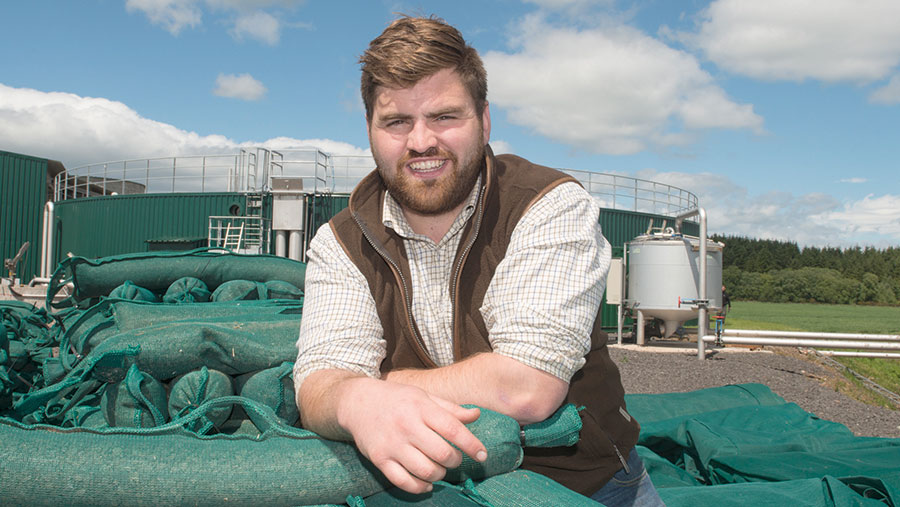
James Fairlie. © Angus Findlay
- 890ha arable crops plus 500kW anaerobic digester
- Crops include potatoes, malting barley and oats
- Managed transition of farm to next generation
How did you feel after hearing you were a winner?
To receive recognition at that level was a very proud moment.
What attributes/achievements do you think are important in a Young Farmer winner?
Someone who has helped develop their business so it’s able to cope with Brexit challenges. Also, someone with a good work ethic who can blend that with man-management skills.
What’s new with your business since FW last caught up with you?
We recently moved to a new potato merchant called Taygrow. They have been pivotal to our potato operation this past year and allowed us to ride out what seems to be a very poor potato financial year.
How different will farming be in 10 years’ time – and why?
Farming will become extremely difficult because margins are getting squeezed tighter every year.
The cost of power and variables keep rising, but the cost of the product is not following suit. Until farmers can unite, I fear that it will become survival of the fittest.
Sheep Farmer of the Year
Matt and Pip Smith, Trefranck Farm, Launceston, Cornwall
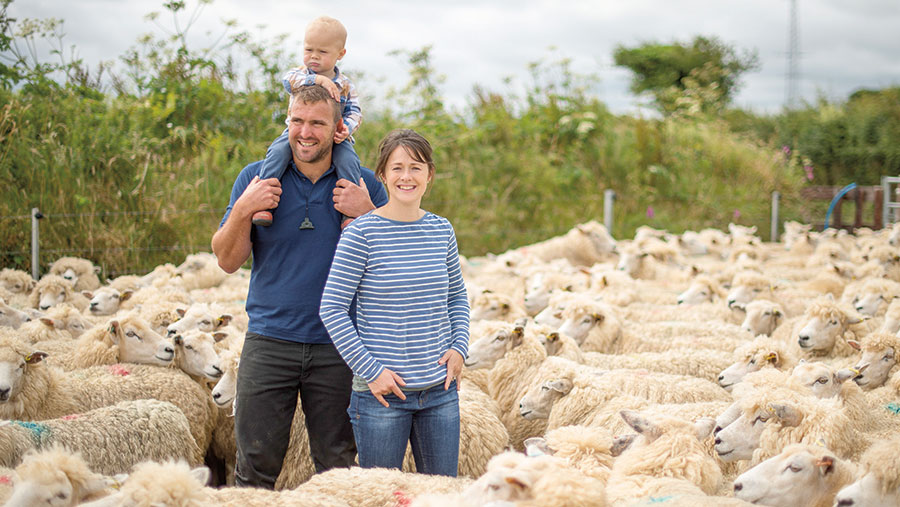
Matt and Pip Smith with their son Dusty © Jim Wileman
- 1,000-plus Romney ewes
- Breeding functional sheep and employing strict culling policies has contributed to a 200% increase in farm productivity
How did you feel after hearing you were a winner?
It was nice to receive recognition from people we respect in the industry.
What attributes/achievements do you think are important in a Sheep Farmer winner?
A good practical breeding policy – one which is looking to reduce drug use through breeding with purpose. Also, having a good understanding of what markets best suit their system.
What’s the biggest challenge you’re facing right now – and how are you tackling it?
Farmers everywhere face a challenge over the public’s perception of farming, so trying to educate people is key.
We offer accommodation on the farm and try to show visitors around and explain the highs and lows we face with farming. We have even had vegans – they may not have become meat eaters but they appreciated that welfare is our main interest and they left less likely to say farmers are cruel.
What’s the best bit of farming advice you’ve ever been given?
Don’t listen to what people say, watch what they do, as actions speak louder than words.
Farm Manager of the Year
Chris Baylis, Hall Farm, Stainton le Vale, Lincolnshire
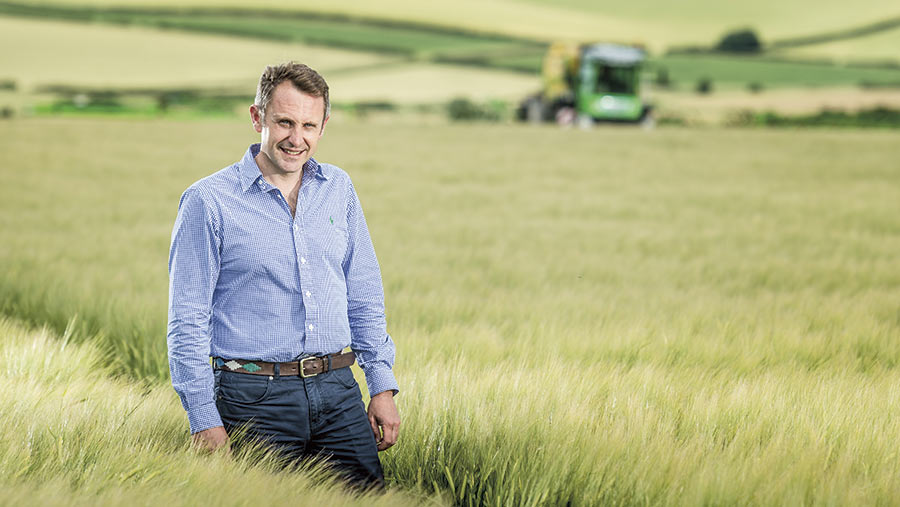
Chris Bayliss. © Jim Varney
- Manages 3,600ha Lincolnshire and 2,400ha Berkshire estates owned by Sir Richard Sutton
- Integrated arable and livestock systems, with good environmental measures
What’s the biggest challenge you’re facing right now – and how are you tackling it?
Our aim is to be sustainable in a post-subsidy era. After an extensive benchmarking exercise, we have streamlined our overheads while improving performance.
We are raising crop yields, enhancing soil health and retaining our environmental work – while forging close ties with retailers, whether that’s Waitrose for beef, Molson Coors for malting barley, HOLL oilseed rape or Vivergo Fuels for wheat.
Such relationships will move us away from producing bare commodities and therefore some of our exposure to global markets.
What’s the best bit of farming advice you’ve ever been given?
Never wait for the weather.
How different will farming be in 10 years’ time – and why?
The efficiency of all farming businesses, irrespective of scale, will become ever-more important – and we’ve brought all the farms together on our two estates into one unified business.
We also recognise the need to maintain the balance between the farming business and the Sutton family’s environmental and social traditions.
